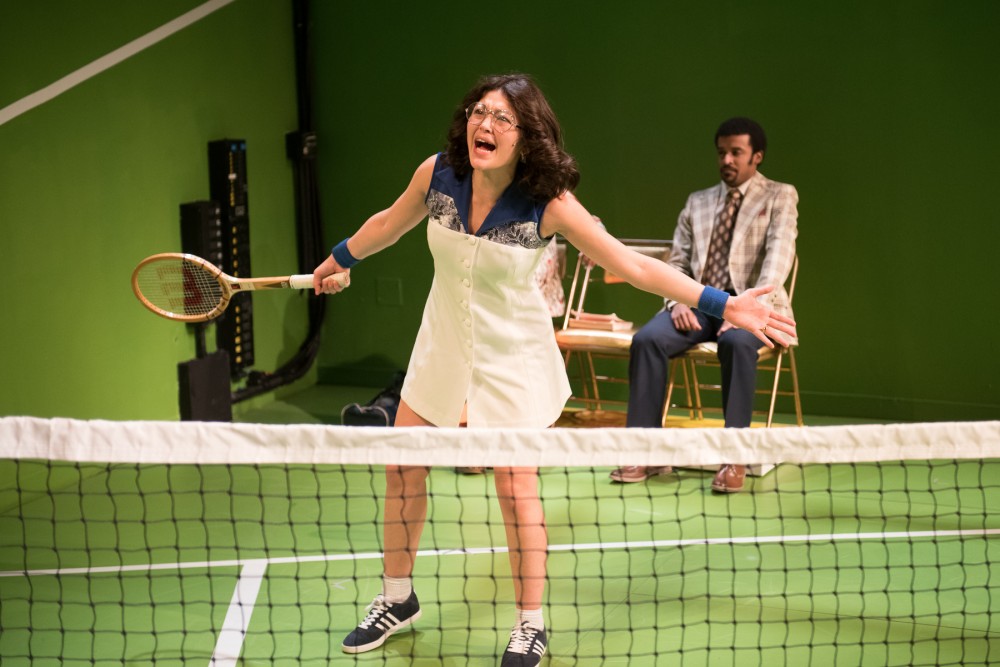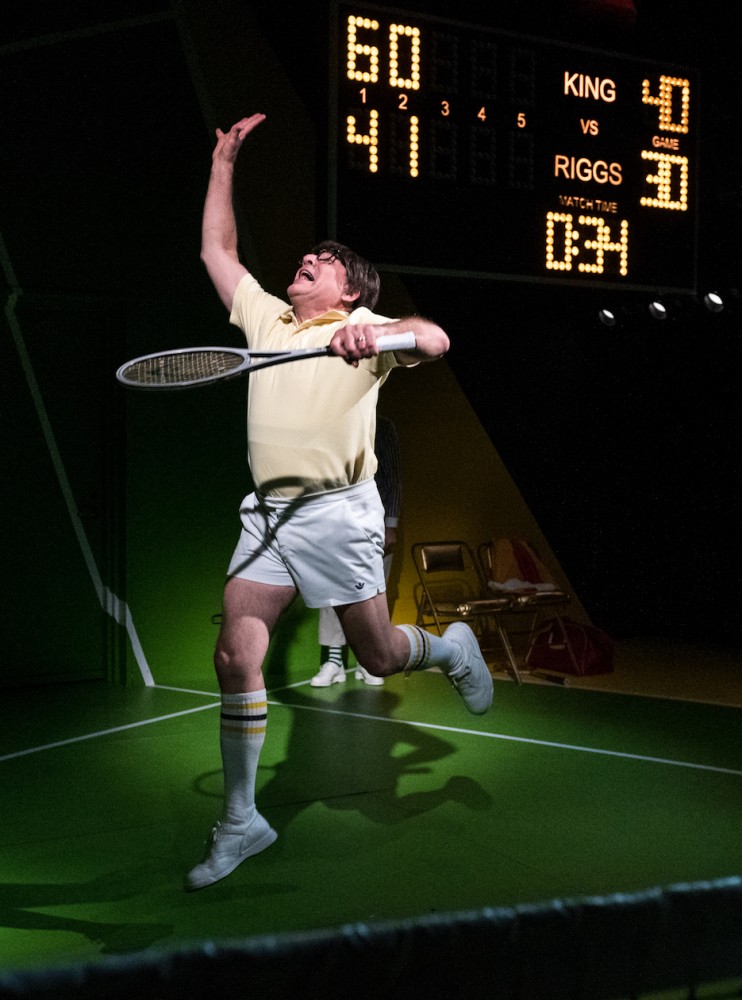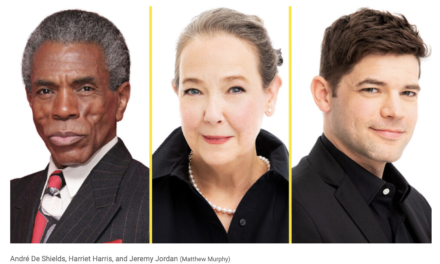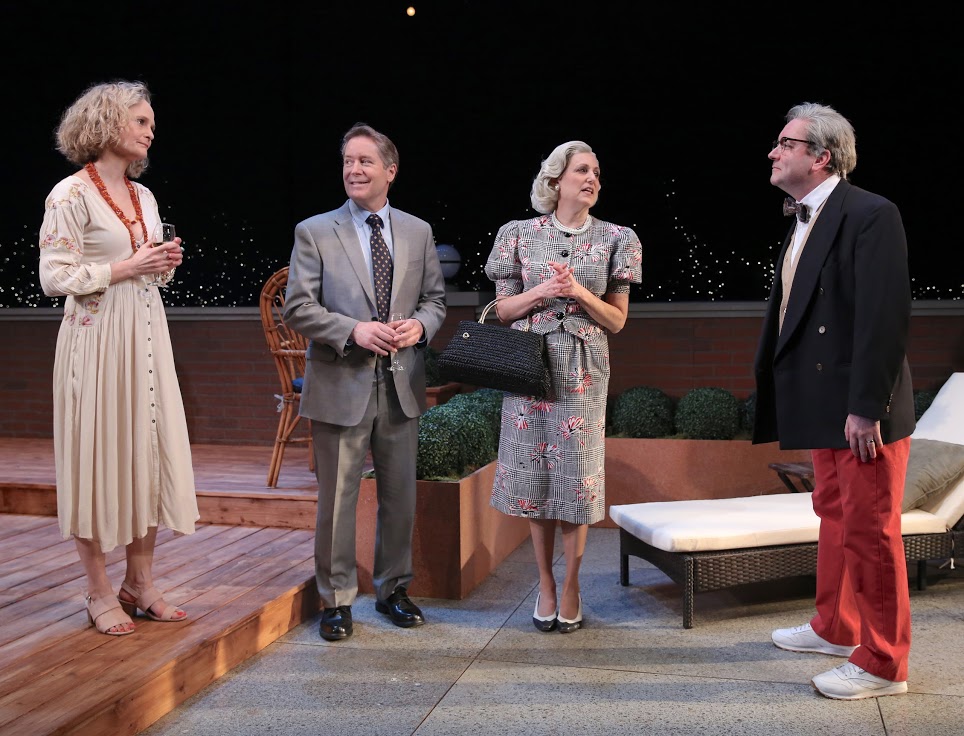“If I am to be a chauvinist pig, I want to be the number one pig!”
by Lisa Joy Reitman-Dobi
The Story:
Bobby Riggs knew how to horrify feminists. He also knew how to win attention. In 1973, the former Wimbledon, French Open and US Open champion was 55, past his prime and restless. Competitive to the core, Riggs hated being off the circuit and out of the public eye. But this born hustler knew exactly which card to play at the height of the second wave of the feminist movement. “Women’s tennis? I think it stinks.” He boasted that he could come out of retirement and beat the current champion female tennis player and dangled a $100,000 win for a win. Twenty-nine year-old Billie Jean King, winner of 12 Grand Slams and ardent feminist, took the challenge and the money had nothing to do with it.
For both Riggs and King, the stakes were far higher than the purse. This was the Battle of the Sexes and the publicity surged beyond the sports section. The public bayed and weighed in. Men and women across the socio-economic landscape and across the globe were riveted. The fanfare took on gigantic proportions. A court surface was laid in Houston’s famed Astrodome.
Riggs wasn’t just back in the limelight; he was a lightening rod. A media frenzy was born and the Riggs-King match jumped from sports to show business.
On September 20, 1973, more than 30,000 spectators and 90 million viewers watched Riggs enter Houston’s Astrodome in a rickshaw pulled by a team of scantily clad women. King was carried aloft in a gold, Cleopatra-style litter borne by four strapping, bare-chested Rice University athletes in togas. In less than three hours, King beat Riggs in three sets and landed a milestone for women’s tennis, female athletes, and feminism.
But the drama doesn’t end after the match. Add a lesbian love affair, deceit, exploitation and you’re almost there.
There are times when life serves up spectacular material, and the King-Riggs story is nothing short of a treasure trove for film and theater. Enter Balls, a new play at 59E59, co-written by Kevin Armento and Bryony Lavery and co-directed by Ianthe Demos and Nick Flint.
The Set Up:
As audience members trickle in, two sociable mimes in clownish attire (Olivia McGiff and Richard Saudek, both superb) greet, and direct each patron to orange and red stadium styled seats. A perfectly condensed tennis court fills and takes full advantage of the small stage.
Blackout: An announcer’s voice delivers a tongue-in-cheek, but patently sophomoric introduction of how early man and woman discover their similarities and differences, and yes, the word “balls” come into play. When the events themselves are oozing with scandal, titillation over the word “balls” (as well as “tits”) comes off as perplexing. Onward.
Stage lights up: Billie Jean King (Ellen Tamaki) is poised to serve. Tamaki captures King: her compact strength and agility, that self-contained demeanor, and of course her iconic eyeglasses and chin-length haircut. Donald Corren absolutely nails Bobby Riggs: energetic, hefty, boyish and boorish. The mimes are now the line judges, and the eager young Ball Girl and Ball Boy (Elisha Mudly and Alex J. Gould) take up their stations.
A brother and sister team, ostensibly twins, Cherry (Cristina Pitter) and Terry (Danny Bernardy), play composite characters who convey the broad spectrum of social groups captivated by the landmark exhibition match. Cherry is exuberant and chatty, at once a torn-denim vested rocker, a struggling single mother and a deeply knowledgeable tennis aficionado. The conceit almost works and is well performed, but ends up as overkill and grating.
In addition to his role on stage, Richard Saudek has done an excellent job coaching Tamaki and Corren in tennis. Racquets move with precision and intention. The ball is cunningly indicated by a precisely timed “Pop!” Movement director Natalie Lamonte is first-rate: this physically demanding play is particularly well choreographed.
I’m in my stadium seat, Billie Jean King is playing Bobby Riggs, the ball girl and ball boy are doing the crouching dash, and I hear that familiar “pop” as the ball bounces off the racquets. Along with most audience members, I’m swiveling my neck as the invisible ball moves across the court. All bodes well, but not for long.
The Breakdown:
The King-Riggs competition was a product of its day. 1973 was a highly charged year during a period remembered for the enormous outcry for social, economic, sexual and racial equality. Bias reigned. However, Balls presents an augmented picture of that era, thus altering the social backdrop that gave rise to the events portrayed. On stage, King’s marriage is presented as bi-racial (her husband is portrayed by the elegant Danté Jeanfelix) and her lesbian love affair is portrayed as bi-racial (the petite, blonde Marilyn Barnett is played by the striking and statuesque Zakiya Iman Markland.) In an abstract or alternative production, these variations could work. But this is not a Hamilton set-up. Verisimilitude has been established from the brilliant court set-up, to a spot-on Bobby Riggs and an equally sharp Billie Jean King. This is not about egalitarian casting. Straightforward depictions tossed together with inventive departures not only forfeit the zeitgeist that defined the times, they marginalize a significant part of recent history and the result is confusion. More than a few exiting audience members expressed surprise that bi-racial couples were accepted “back then.”
Going Nowhere, Fast:
Balls is a carnival-esque crush of rapid-fire events that jump forth and back over 40 years: there’s a marriage, adultery, a lawsuit, the birth of Monica Lewinsky, an explanation of the origin of the tennis ball, celebrity appearances, celebrities changing careers, changing spouses, the ongoing tennis match, and world news updates –including Hillary Clinton’s defeat by Donald Trump- announced by an Umpire seated so high in the sky that he has a global perspective, which he shares throughout the play. If the latter is an attempt to give the King-Riggs match a world- context, it is poor effort that stands in opposition to the production’s selected erasure of the actual socio-political environment.
Going Forward:
As flawed as it stands, Balls has, in fact, a cornucopia of advantages: readily available, vibrant material, excellent staging, sleek choreography and a talented cast. Assiduous editing might take care of the play. The fine team behind the production can certainly take care of the rest.
Balls runs through February 25. For tickets and information, visit www.59e59.org.

























